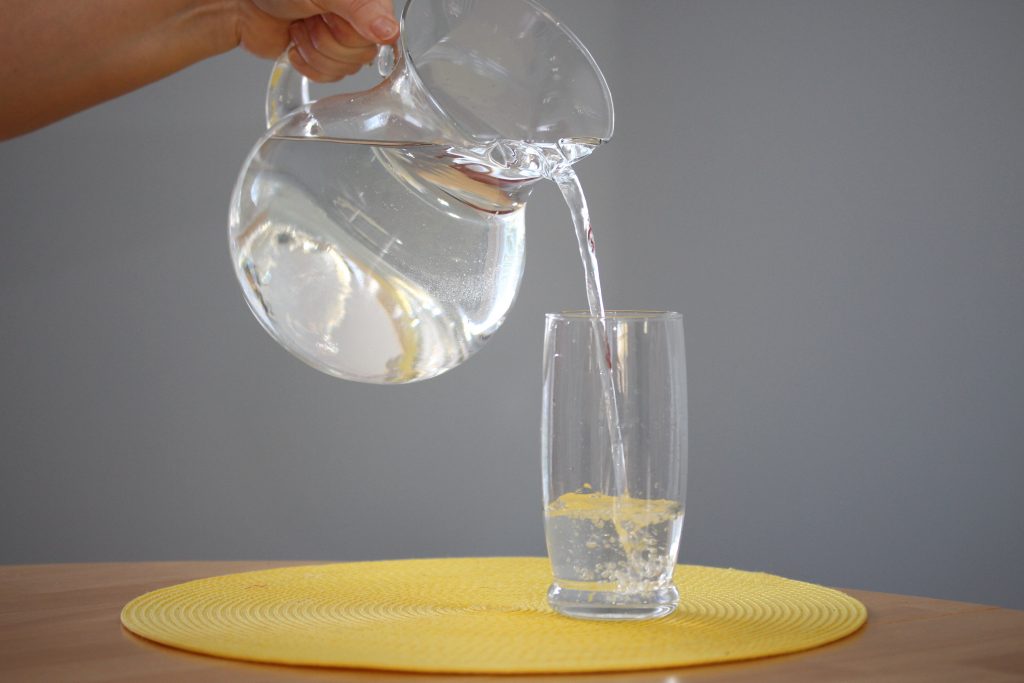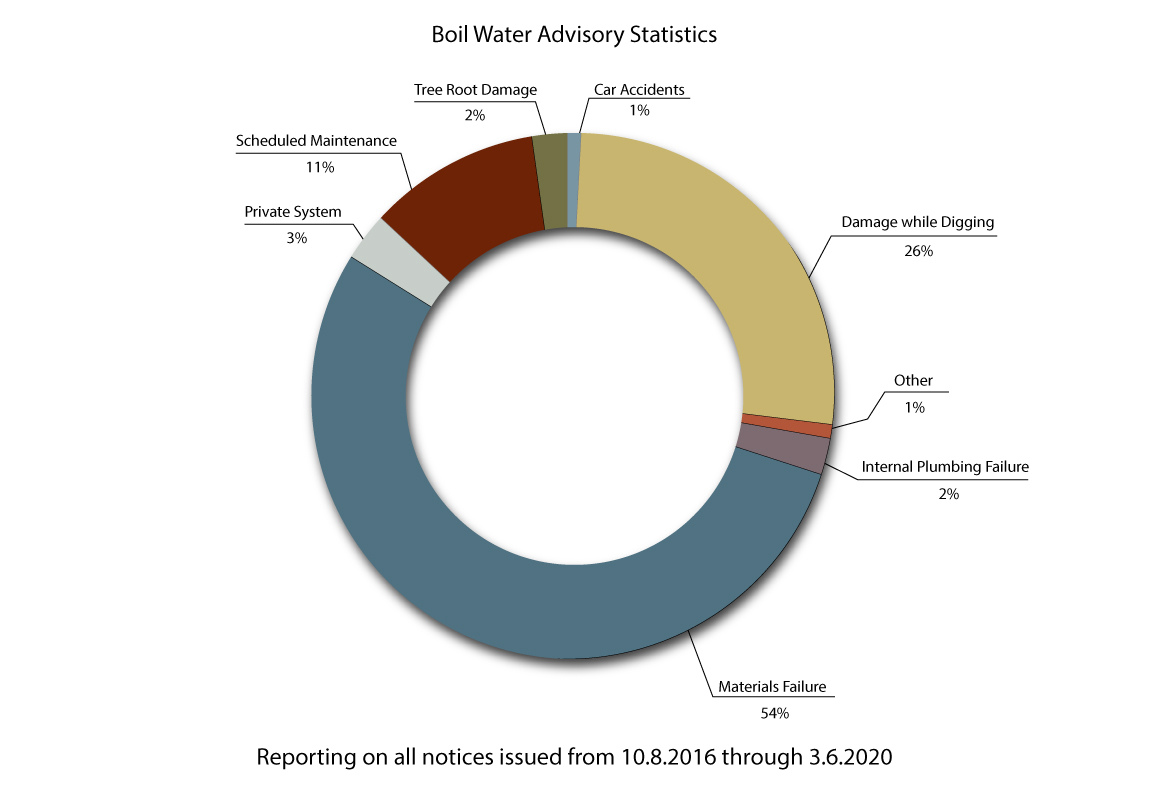FYI – What is a Boil Water Advisory?
What Exactly is a Boil Water Advisory?
A loss of pressure in the distribution system may cause back-pressure, back-siphonage, or a net movement of water from outside the pipe to the inside through cracks, breaks, or joints in the distribution system that are common in all water systems. Such a system failure carries with it a potential that bacterial contamination or other disease-causing organisms could enter the water distribution system. These conditions may pose an imminent and substantial health endangerment to persons served by the water system.
A precautionary boil water advisory is being published as a warning to those who live in, work in, or travel through the affected area. During the period of the loss of pressure, water will also not be available for fire suppression use.
We take every measure that we can to ensure that your water is safe to drink. You can normally expect your water to flow to your house at around 60 pounds per square inch (PSI). This pressure, coupled with a small amount of chlorine that’s added at the water plant, helps insure that no harmful bacteria gets a chance to grow. A boil water advisory is a precautionary notice sent out to alert customers that a main break has caused system pressure to drop below 20 PSI. Due to this drop in pressure, bacteria may get a chance to breed and spread through the pipes. The chances of this happening may be slim, depending on how quickly we are able to restore service, but we are still going to alert you to this situation out of an abundance of caution. Until an all-clear notice is given, boiling water intended for direct consumption for at least three minutes is advised.
What Can We Do To Prevent Them?
 The most important thing that anyone can do to prevent a boil water advisory is to call 811 before you dig. Some main breaks are caused by unauthorized excavating in the area of our utilities. Other main breaks are the result of natural causes or failures in material. However, making the free call to the Georgia Utilities Protection Center helps reduce the risk of hitting our mains, power lines, communications lines or gas lines as each utility will provide either a paint marking or flag indicator of the services located underground, as depicted here:
The most important thing that anyone can do to prevent a boil water advisory is to call 811 before you dig. Some main breaks are caused by unauthorized excavating in the area of our utilities. Other main breaks are the result of natural causes or failures in material. However, making the free call to the Georgia Utilities Protection Center helps reduce the risk of hitting our mains, power lines, communications lines or gas lines as each utility will provide either a paint marking or flag indicator of the services located underground, as depicted here:
Why Are They Becoming More Frequent?
The precautionary boil water advisory process has been in United States Environmental Protection Agency (EPA) and the Georgia Department of Natural Resources Environmental Protection Division (EPD) guidelines for many years. Prior to Hurricane Matthew in October 2016, the BGJWSC did not follow the guidelines as a policy and there was no statutory enforcement of the notifications by either the EPA or EPD.
During the Hurricane Matthew response efforts, we put out a boil water advisory for the St. Simons Island district due to a major and significant service outage caused by a main break. That advisory was prompted by the recommendation of an agent of the Georgia Emergency Management and Homeland Security Agency (GEMHSA) embedded in the Glynn County Public Safety Complex (911 Center) at the time and was considered the right thing to do considering the large number of affected customers. We have subsequently made the decision that the right thing then is still the right thing now and into the future.
How Will I Be Notified?
We will now issue these warnings following the EPA and EPD guidance: a drop of pressure below 20 PSI for any length of time will warrant distributing a boil water advisory to the affected citizens using the most effective means available to us. Our staff will then test water samples for bacterial growth for 24 to 48 hours. Once the testing has completed without an indication of harmful bacterial growth, we will issue the all-clear.
We are presently sending that notice out from our website, to radio and print media, social media, and to those that have subscribed to our website to receive these and other regular updates. We’re pursuing more active methods to deliver the notice, such as via text or phone, but will, at the least, continue to use the existing methods, which has been approved as a ‘best practice’ by the EPD.
Please subscribe to our website to receive emails from us or follow our Facebook and Twitter pages as well to ensure that you are getting the fastest, most accurate information delivery regarding the services that we provide to you.
Why Do Restaurants Have to Close Down?
Periodically, the Brunswick-Glynn Joint Water & Sewer Commission (BGJWSC) is required to issue boil water advisories that may affect the water service provided to food service establishments. Glynn County Environmental Health, through Foodservice rule 511-6-1-.03 subsection (2)(n), requires the person in charge of a food service establishment to discontinue operations of the establishment until the boil water advisory is lifted. However, operations may continue if the food service establishment has an approved emergency operations plan on file with Glynn County Environmental Health prior to the occurrence of the event.
The BGJWSC and Glynn County Environmental Health understand that discontinuing operations for 36-48 hours is never the preferred option for the owner of the food service establishment. Please click here to review a brochure outlining what each food service establishment must do to have an approved water interruption plan to prevent having to discontinue operations in the event of a boil water advisory.
For further information on the requirements for a water interruption plan, please contact Wayne Nuenke with Glynn County Environmental Health at 912-279-2941 or wayne.nuenke@dph.ga.gov.

